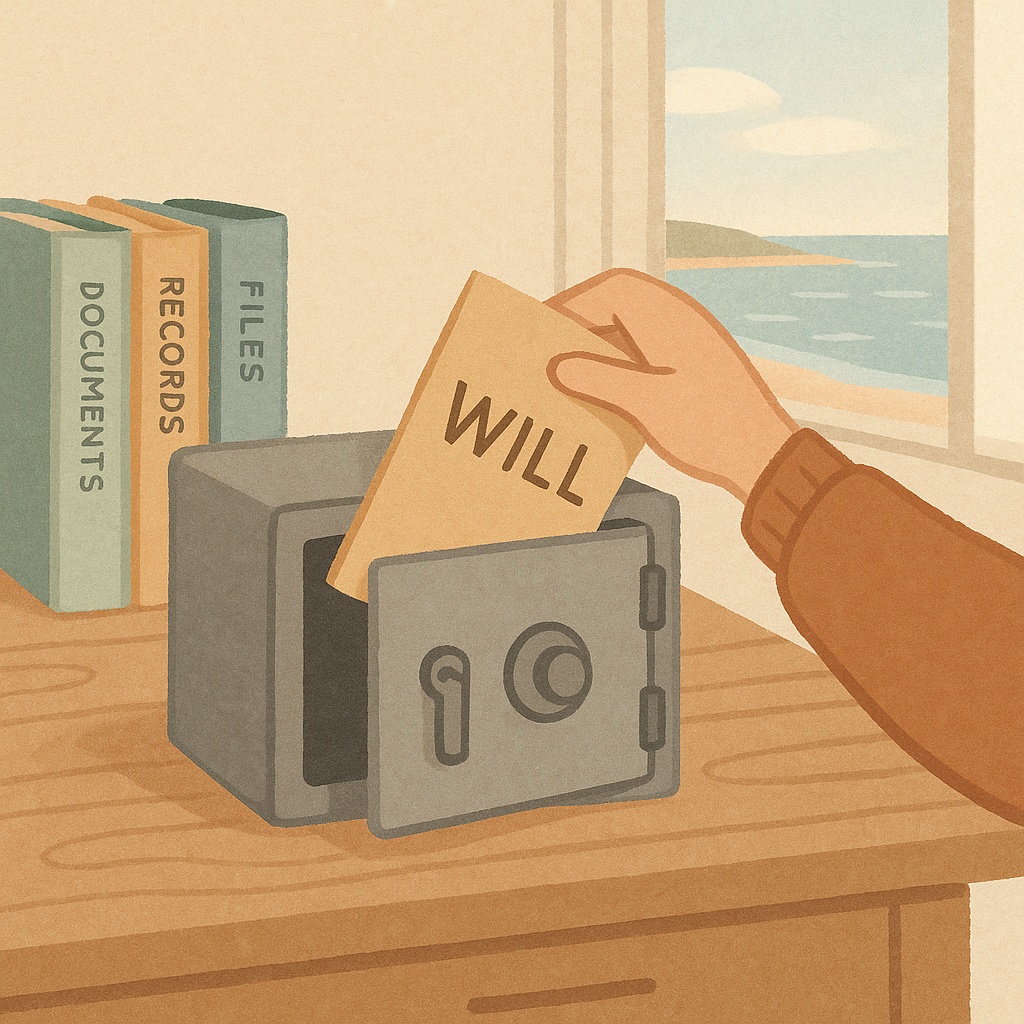Where Should You Store Your Will Safely?
Writing a will is one of the most important things you can do to protect your loved ones, but keeping it safe is just as crucial.
If your will is lost, damaged, or accidentally destroyed, it could cause confusion or even make it impossible to carry out your wishes. At Coastal Legacy, we help clients across Hampshire, Gosport, Fareham, and Portsmouth not only write their wills but also store them securely for peace of mind.
Here’s how to make sure your will is always protected and easy to find when it’s needed most.
1. Why Storing Your Will Matters
Your will is a legally binding document. If it goes missing or can’t be found after your death, the law will assume you died without one known as intestacy.
This means your estate will be divided according to standard legal rules rather than your personal wishes. To avoid this, your will must be:
- Kept in a secure place
- Clearly labelled and undamaged
- Accessible to your executors when the time comes
2. Options for Storing Your Will
There are several ways to store your will safely in the UK. Each has its advantages, depending on your preferences and circumstances.
A. Store It with Your Solicitor or Will Writer
This is often the safest option. Professional will writers like Coastal Legacy offer secure document storage, protecting your will from loss, fire, or accidental damage.
We also record its location and ensure your executors know exactly how to access it when needed.
B. Keep It at Home (with Caution)
You can keep your will at home, but this option carries risk. Documents can be misplaced, destroyed by accident, or damaged by fire or water.
If you do store it at home, make sure it’s:
- In a waterproof, fire-resistant folder
- Out of sight but known to your executors
- Not stapled or clipped to other papers (as this can affect its validity)
C. Store It with the Probate Service
You can register your will with the HM Courts & Tribunals Service for a small fee. This is a secure government option, but it doesn’t offer personalised guidance or quick updates if your will changes.
D. Bank Safe Deposit Box
Some people use a bank safe deposit box, but this can be problematic. Banks may seal the box after death, preventing executors from retrieving the will until probate is granted, creating delays.
3. Who Should Know Where It Is
It’s vital that at least one person (usually your executor or a close family member) knows where your will is stored and how to access it.
You don’t need to give them a copy, but they should know:
- The name and contact details of your will writer or solicitor
- The storage location reference (if applicable)
- Any passwords or codes required for access
At Coastal Legacy, we make sure your executors are fully informed so they can locate the document quickly when the time comes.
4. Updating and Re-Storing Your Will
If you make changes to your will or create a new one, it’s important to replace any previous copies. Outdated or conflicting versions can cause confusion and may even be contested.
We recommend reviewing and updating your will every few years or after major life events such as marriage, moving home, or welcoming new family members.
5. Coastal Legacy’s Secure Will Storage
We offer a dedicated will storage service for clients across Hampshire. Your will is kept safely in our secure facility, and we maintain clear records of its location and authorised contacts.
You’ll receive confirmation that your will is stored correctly, and your executors will know exactly where to find it.
Peace of Mind That Lasts
Writing your will is an act of care. Storing it properly ensures that care continues long after you’re gone.
At Coastal Legacy, we make sure your wishes are not only written but also safely preserved; giving you and your family total peace of mind.
👉 Contact Coastal Legacy today to learn more about our secure will storage and professional will writing services.

